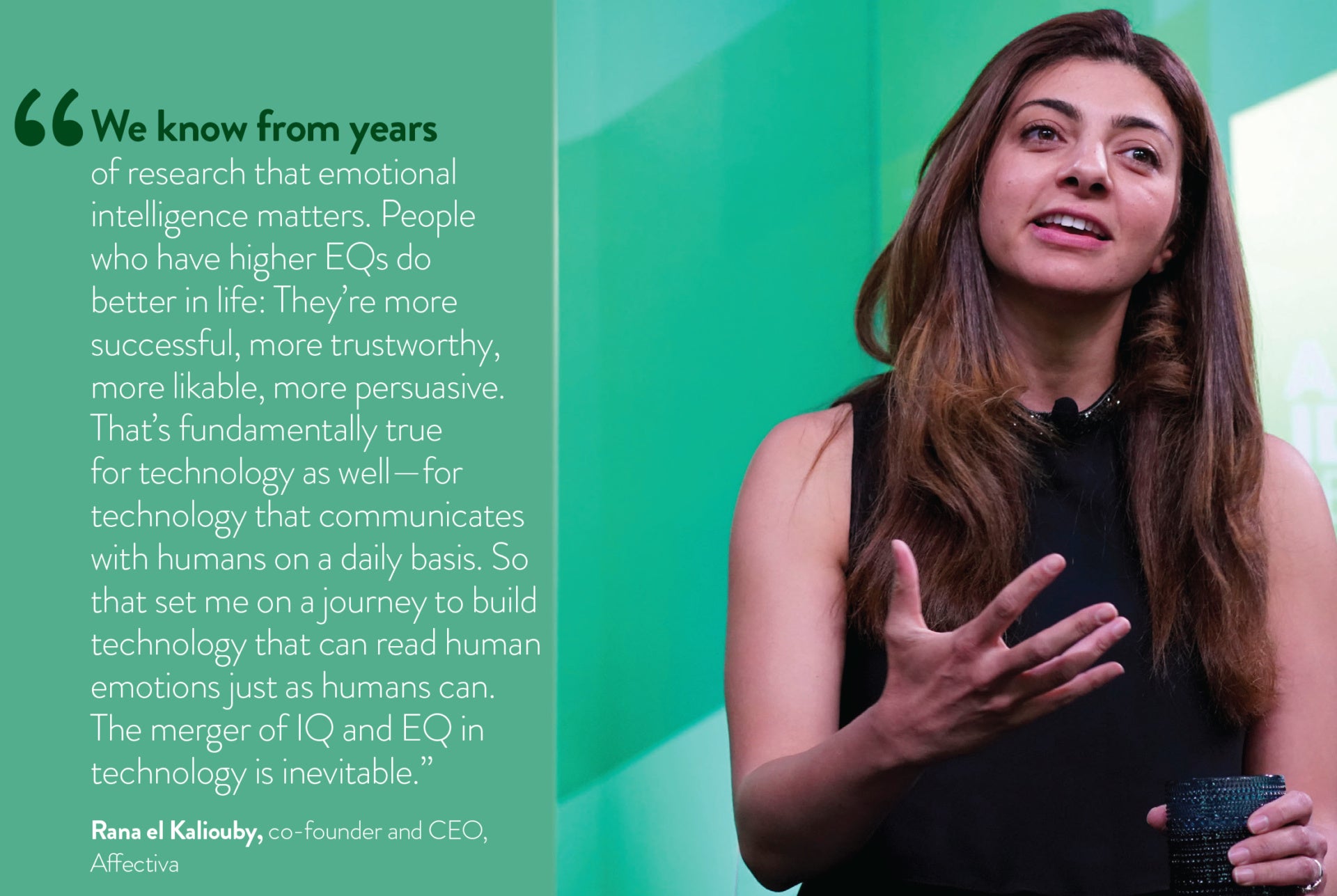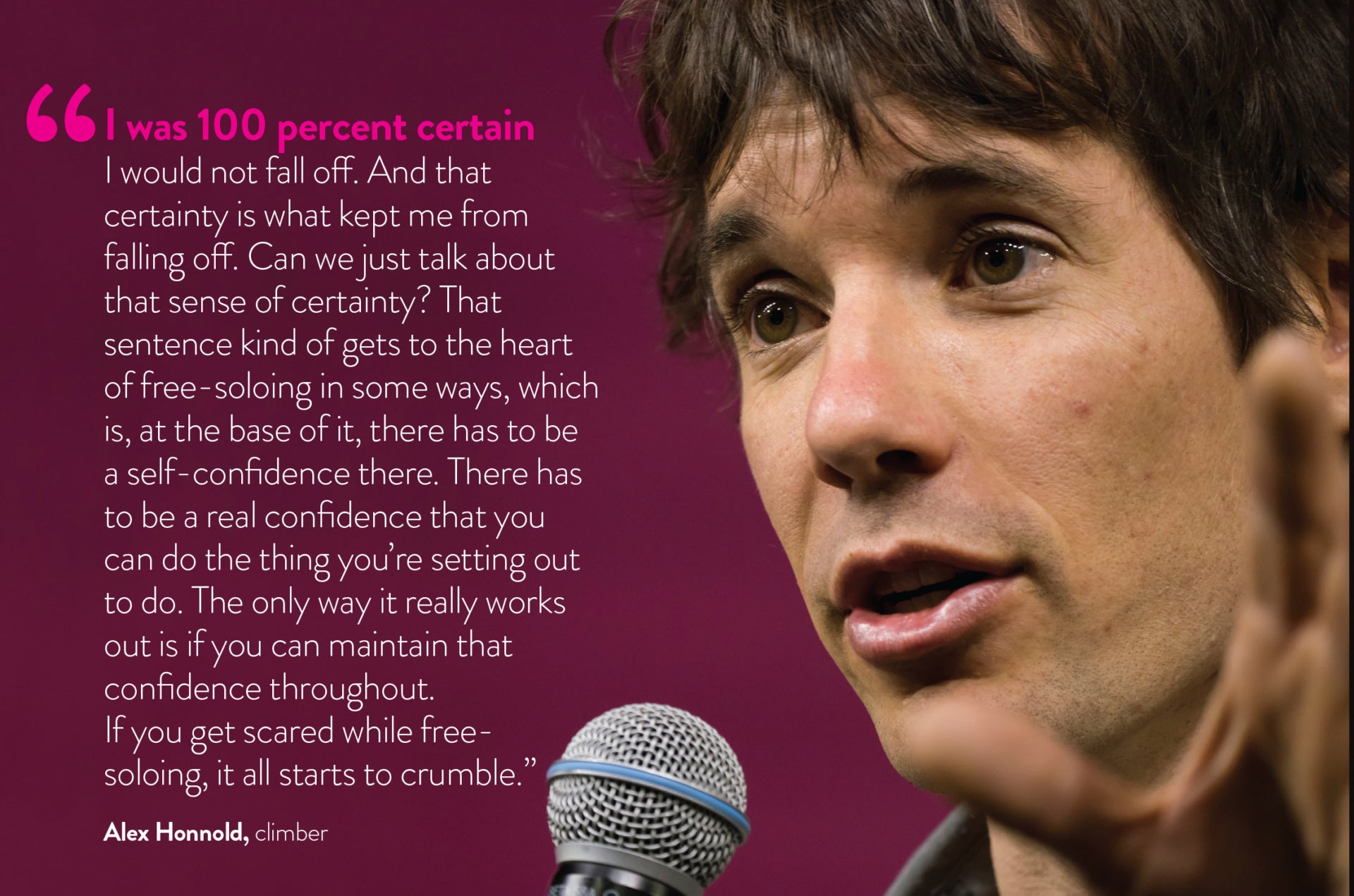It can be hard to find a quiet moment during the summer at the Aspen Institute. The entire campus is alive with sound. On one end, students at the Aspen Music Festival are practicing their newest orchestral pieces. On the other, Institute participants are arguing about the ethics of genetic engineering. The air is electric. Ideas jump from person to person. It is exhilarating and inspiring and chaotic.
But in Anderson Park, you will find respite. Intentionally placed in the middle of the 40-acre campus between the rooms where you rest and the rooms where you engage with ideas, this is a place for reflection—for transcendence. It forces you to look up at the resplendent mountain vistas before turning your gaze to pools of shimmering water below. Herbert Bayer’s signature landscapes lend themselves to such moments. The Bauhaus artist’s influence is present throughout the Institute, in buildings and outdoor spaces and even the landscapes they frame.
Much like the Bauhaus movement, the work of the Institute is a rebellion against the norm—against what has been done before. Our summer programs celebrate progress and innovation. At Aspen Ideas: Health and the Aspen Ideas Festival, speakers and attendees this year discussed everything from the Green New Deal to fresh ways to think about our emotions. The Aspen Security Forum tackled current challenges to our national security. At the Resnick Aspen Action Forum, global leadership fellows examined the borders both internal and external in their lives. And at Bauhaus: The Making of Modern, we marked the centennial anniversary of the German school recognized as the 20th century’s most revolutionary experiment in art, architecture, and design.
The change of seasons conjures the same emotions as that in-between space in Anderson Park. As we slow our pace in preparation for cool weather, we can allow our ideas, and ourselves, our own room to reflect—and even seek the transcendence Bayer’s landscape makes real every summer.
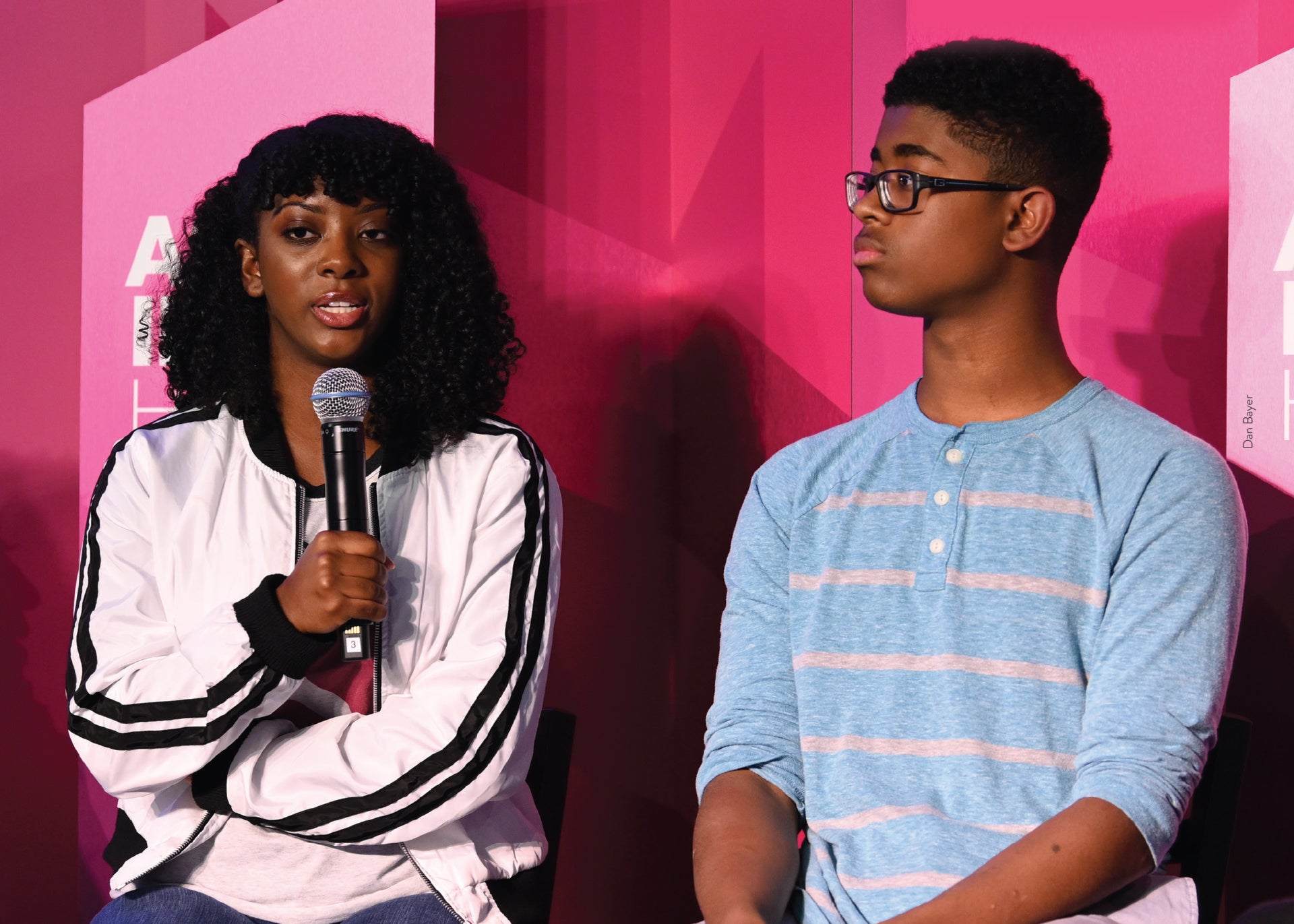
My dog did something cute and I didn’t smile. That’s terrifying, because my dog is adorable, you know? I mean, it terrified me. I remember going through the day hoping to feel something. I think that’s actually why I started self-harming, because I wanted to feel something.
–Hannah Lucas, 17, co-creator of the NotOK app
After Hannah’s suicide attempt, we started learning more and more about mental health. And it wasn’t just something to push into a closet and ignore. We made the NotOK app—a digital panic button that sends a text message to your preselected five closest contacts with a text message that says, ‘Hey, I’m not OK. Come call me, text me, or check up on me,’ along with your current GPS location and directions.
–Charlie Lucas, 17, co-creator of the NotOK app
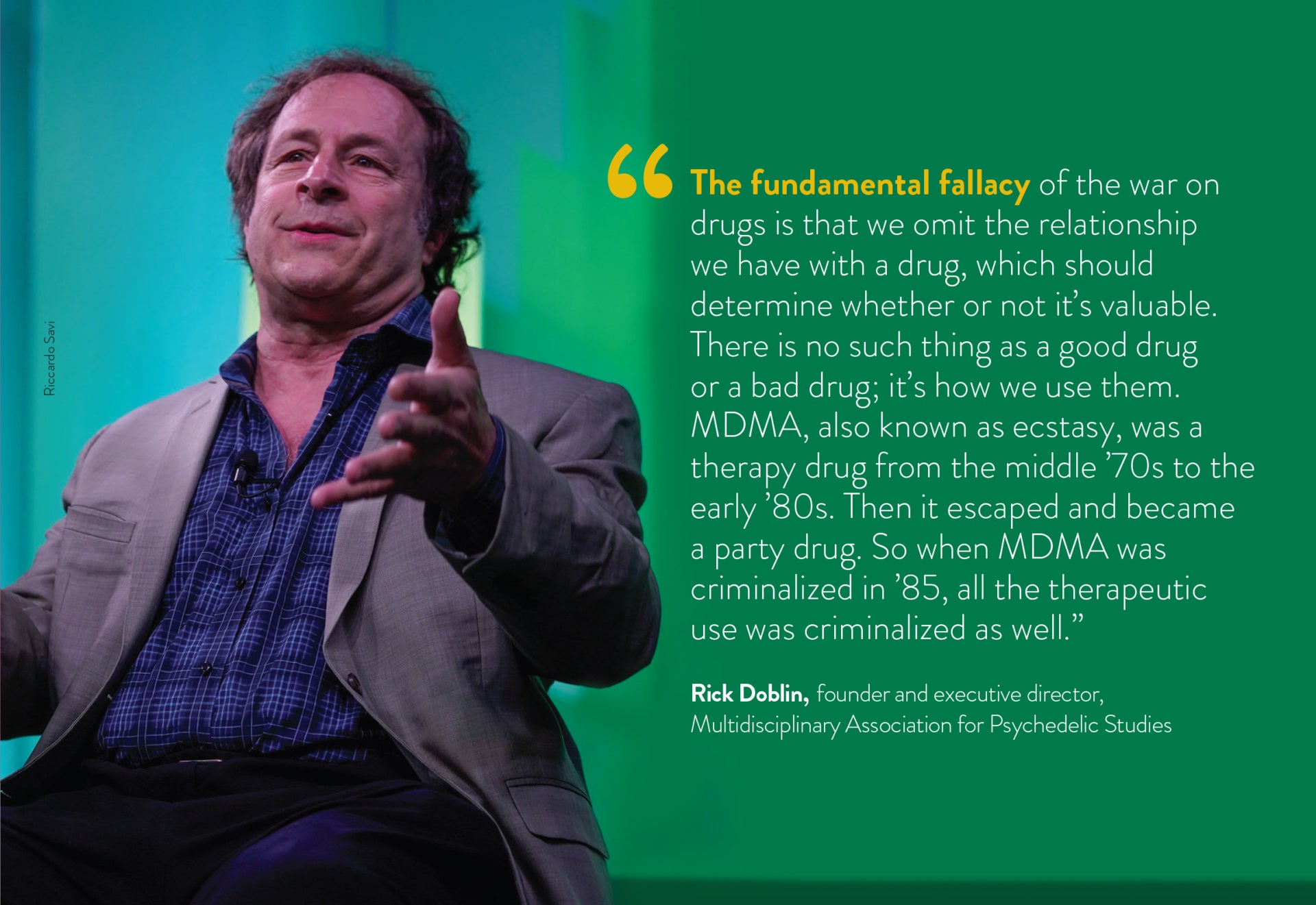
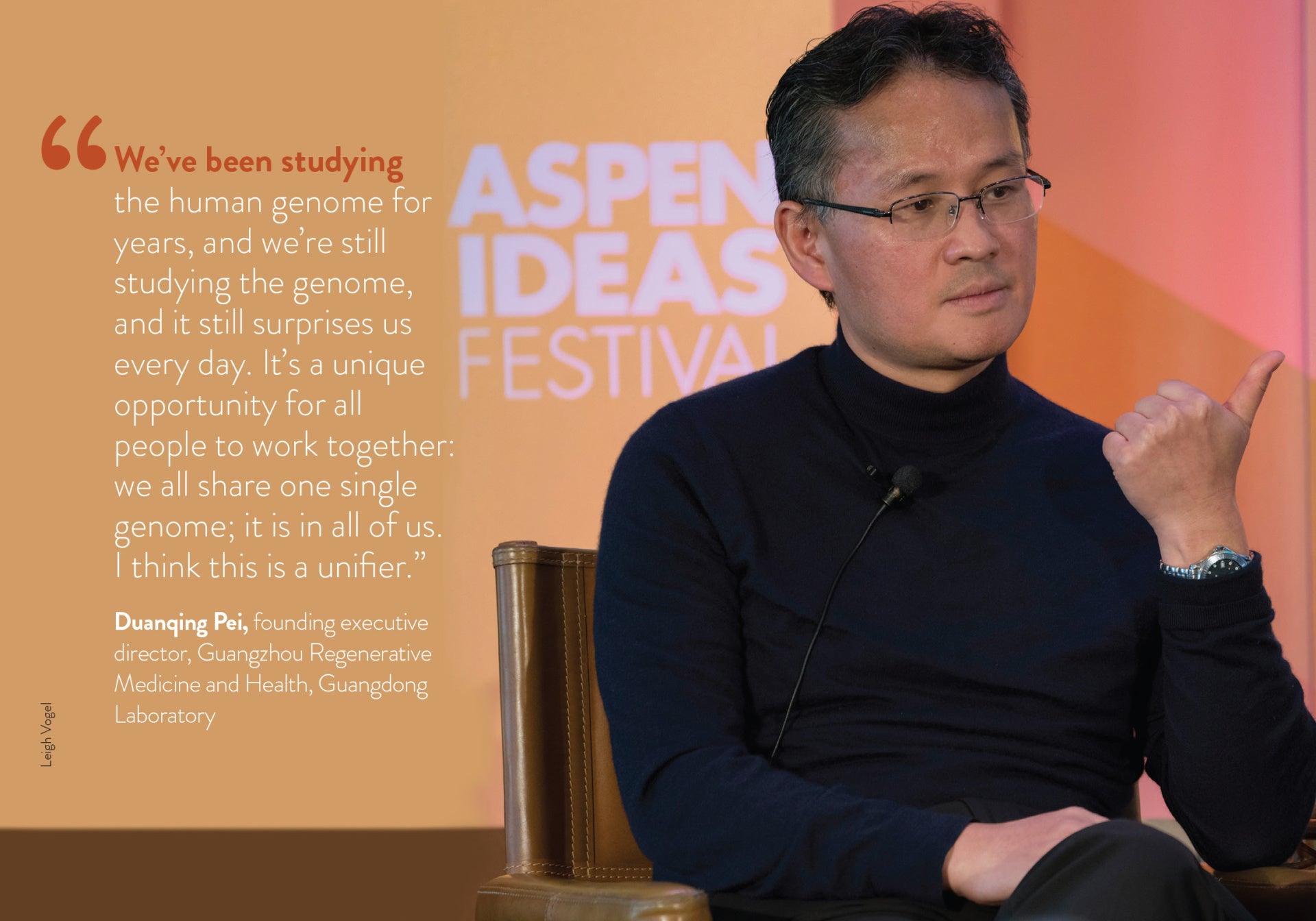
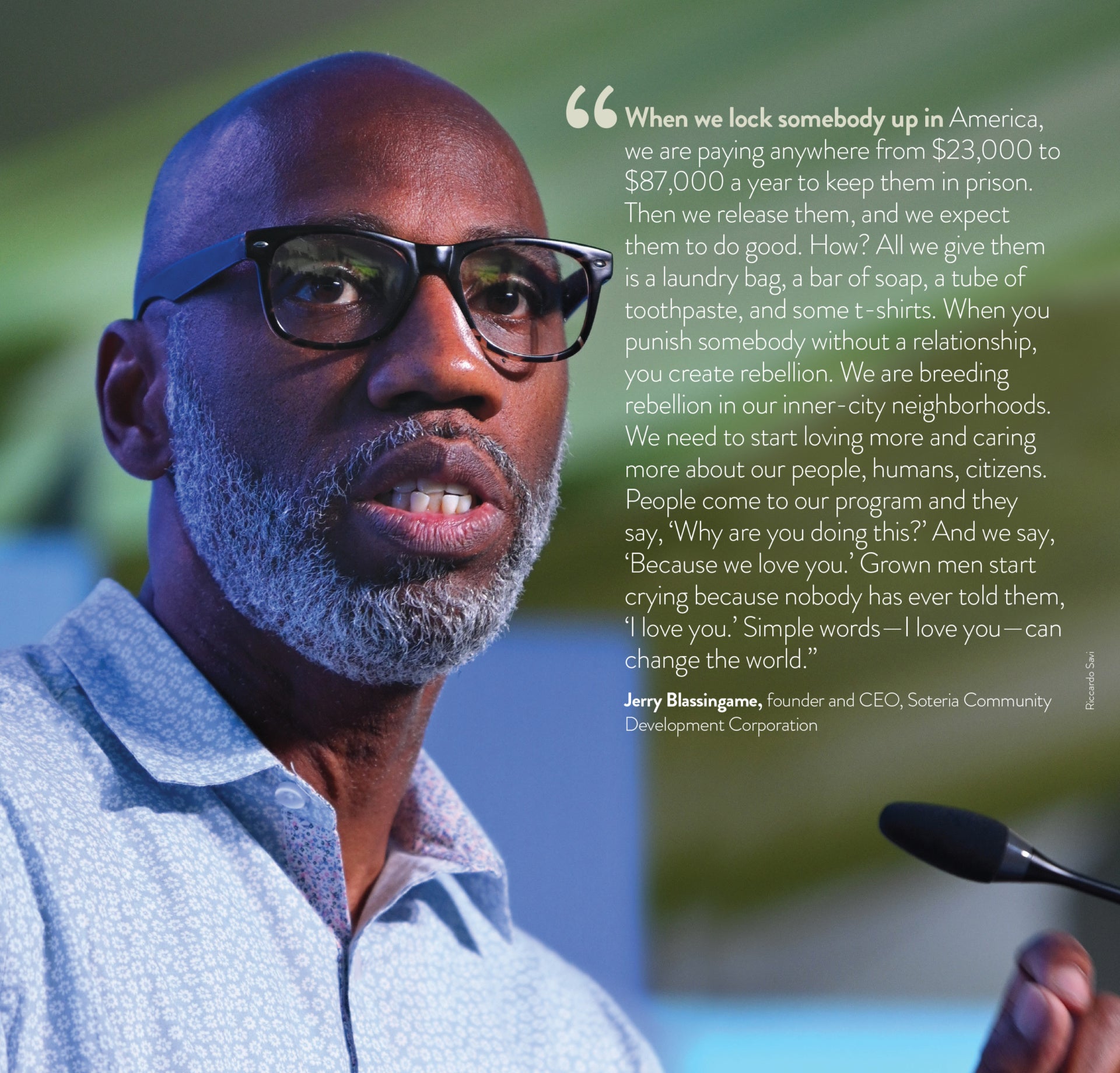
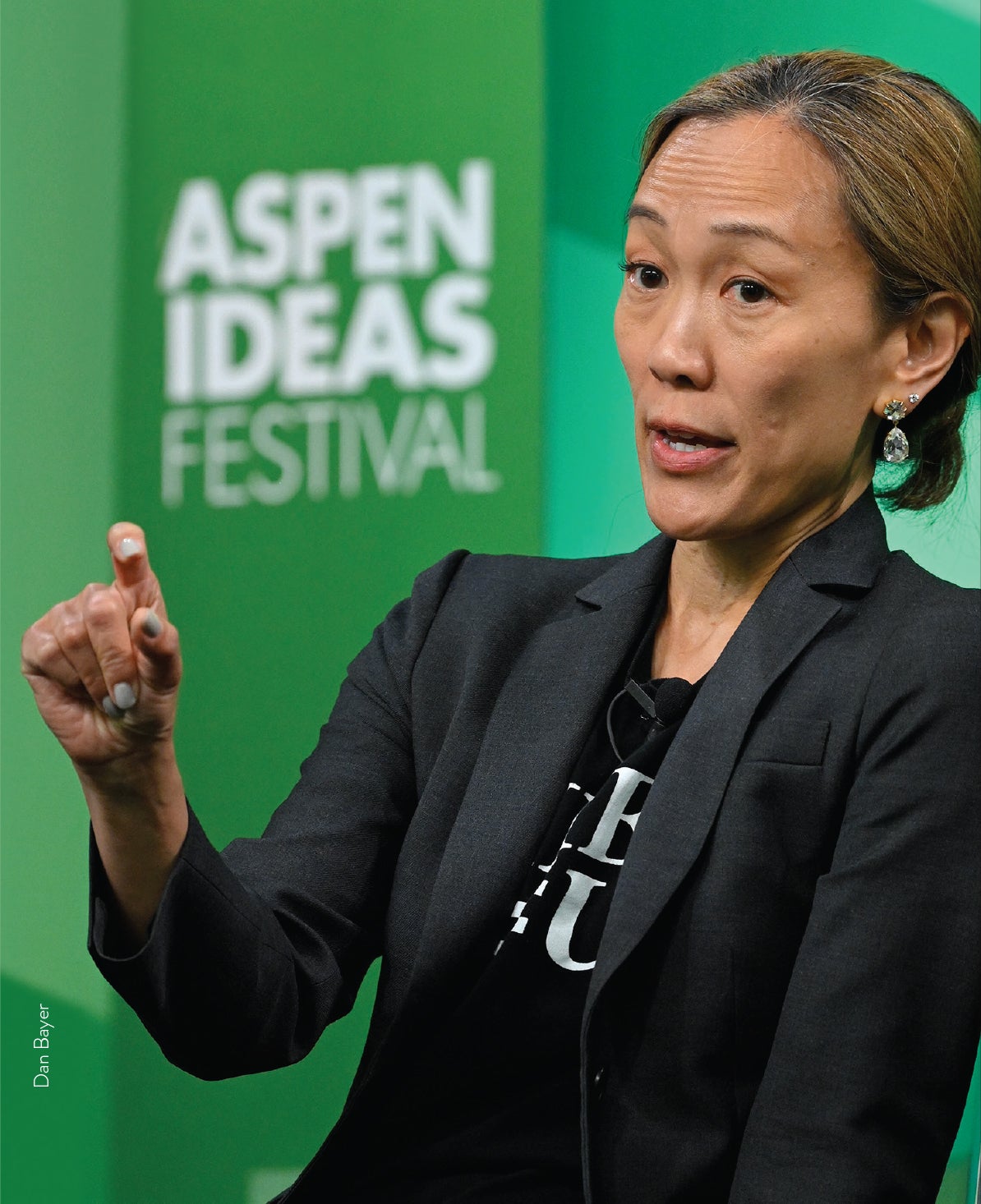
When #MeToo exploded on the scene, its most visible proponents were women in Hollywood. While they were thinking about how to change the culture, they got a letter from migrant farmworkers. These women said to them: ‘What you experience on the film sets in Hollywood is what we experience in the field every day. But you are women of power, and we have no agency or voices. But still, we’re here to support you.’ It was a tremendously moving moment. And that is what galvanized Time’s Up. Those women started a crowdfunding source—the most successful crowdfund online in the United States. Time’s Up legal defense fund has represented women across industries, and the number two industry it has represented is health care.”
–Esther Choo, strategic lead, Time’s Up Healthcare
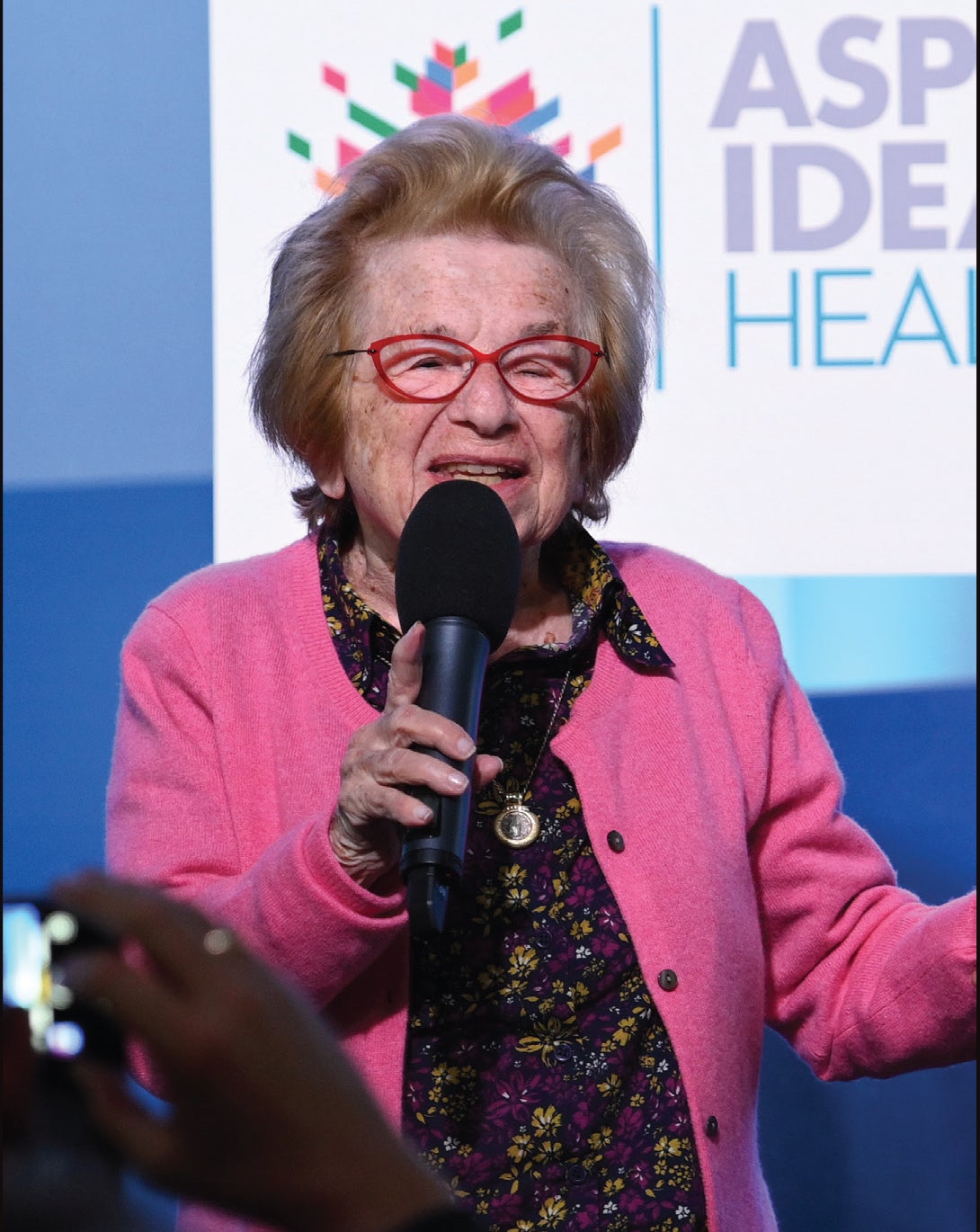
Some things change in life even for a 91-year-old. I’ve always said I don’t talk about politics. Somebody who talks about sex from morning till night has to stay away from politics. These days, I’ve changed my mind. I’m very upset when I see children being separated from their parents because that is also my story.”
–Ruth Westheimer, author and sex therapist
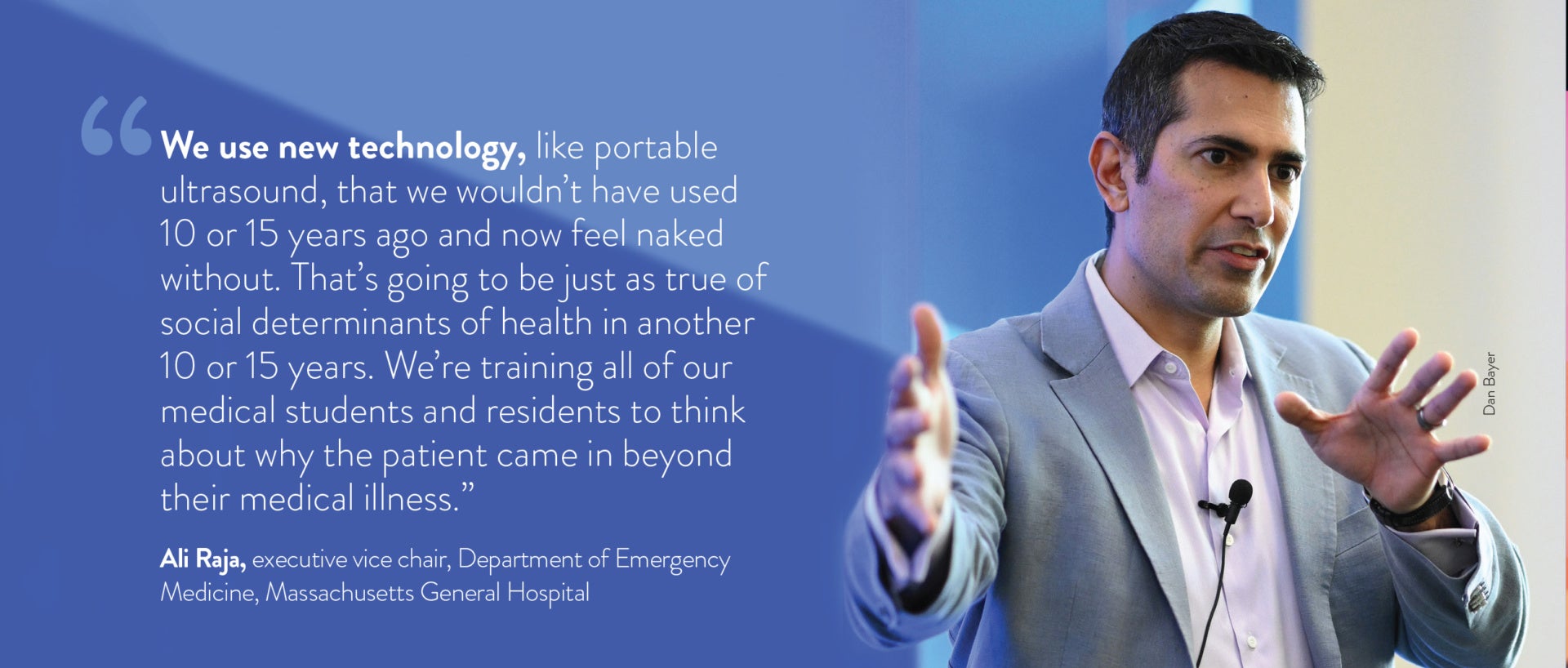
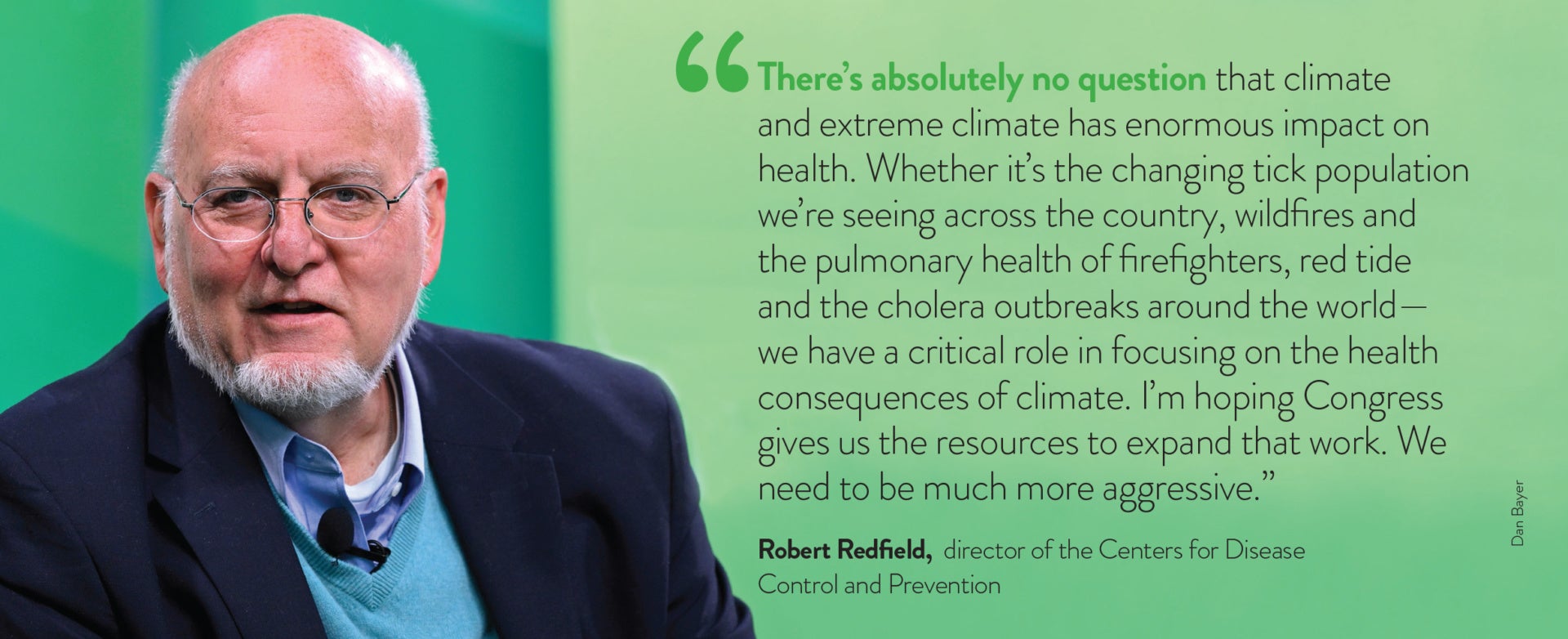
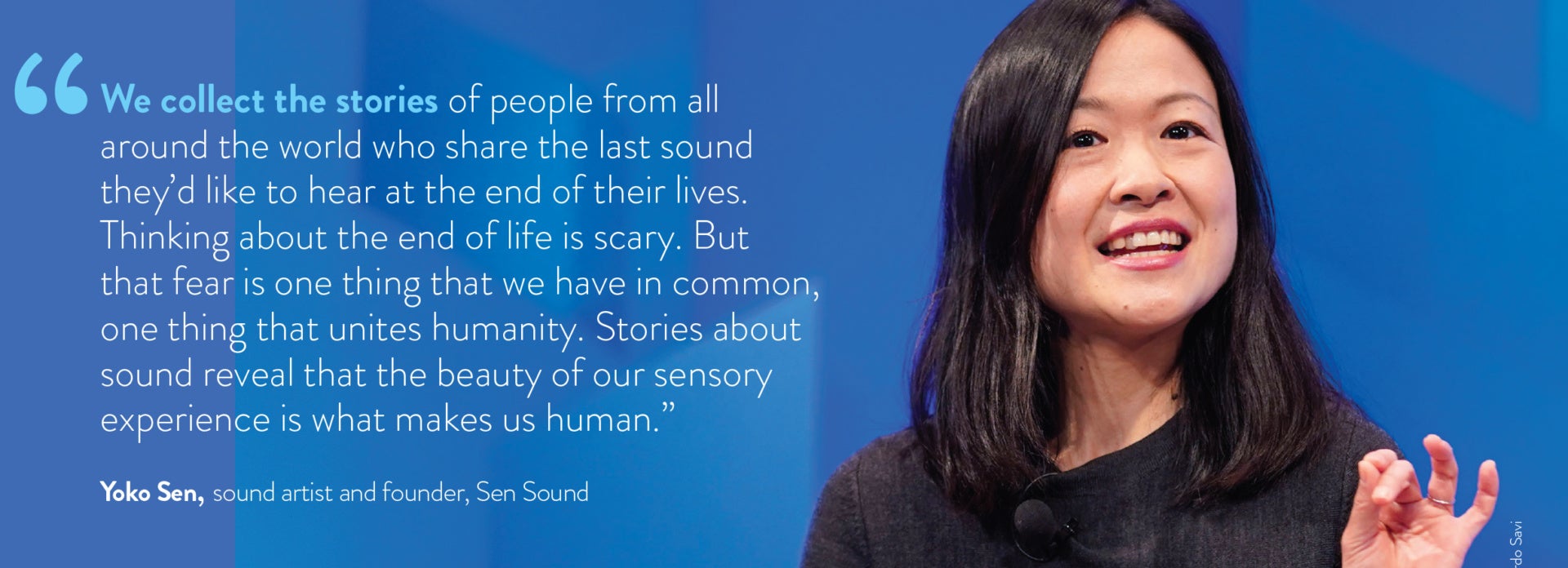

It was a Monday morning. I had started working for Feeder Kenya, a women’s rights organization. My program manager alerts me that there’s a 21-year-old girl incarcerated on Friday who needs help. I was a corporate lawyer working with millionaires and billionaires and property developers. At the police station, I’m told to go to the back where my client is. They have isolated her. They tell me I must talk to her through wire mesh. As I allow my eyes to adjust, I see this little girl in the corner in the dark, her knees clutched up to her chest. She’s not responding to me. ‘So what is my client in for?’ I ask the police officer. ‘Oh she’s been charged with procuring an unsafe abortion.’ I quickly think about my mom, who is a Maasai Christian Presbyterian. What is she going to say about me? Dear Jesus, I am among one of the girls who ridiculed and shamed women in universities who had had unsafe abortions. The police officer shows me photos of a basin that has a fetus in it and proudly tells me this is going to be one of the easiest cases he’s ever handled. ‘Has this young girl had any medical care since you incarcerated her?’ I ask. ‘She’s a criminal! It’s what she deserves. The best we can do for her is her day in court.’ At that very moment, I knew this was going to become my new identity. I was going to represent women who had been incarcerated and charged with abortion-related offenses. And I was going to do it for free.
–Tabitha Saoyo, human rights lawyer
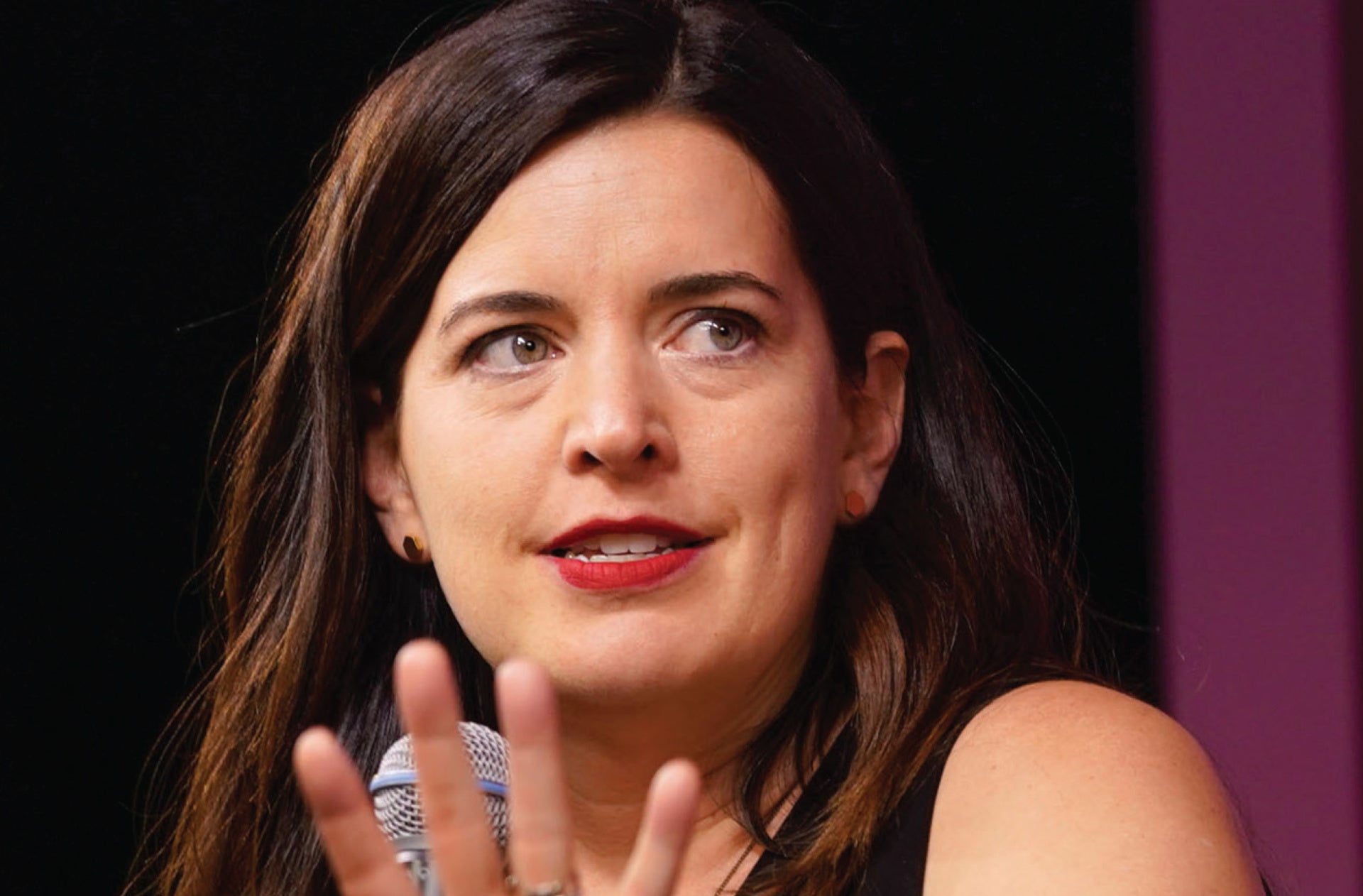
When you have stage IV cancer, you say all the things that you hope will be true—like, ‘I’m sure it will be great,’ or, ‘I’m sure we can afford it.’ You’re trying not to hurt the people you love most, because you feel in that moment like you’re the worst thing that ever happened to them. So you lie to each other. We live in this culture that seems unable to allow people to suffer without explaining them. A lot of the people who were the cruelest were either fully religious or imagined themselves not to be religious at all. I should either surrender to the fact that I am the product of an uncaring universe and why bother trying, or God was certainly punishing me for a reason. There was a real desire to defend God from tragedy—such a basic desire to say that we need to be on God’s side when we see the evils of the world. I thought it was unbelievably cruel that you can tell somebody who has a 2-year-old kid and a husband they’ve loved since they were 14 that their loss is somehow part of a divine math that they can solve. I just needed everyone to take a step back and realize that the math isn’t easy. Whatever the calculus of our lives is, it isn’t easy. So I started writing. Then I became secretly thrilled to meet other people like me and realize that this cultural inability to talk about suffering is actually a really amazing way to enter into our deep humanity. So I stuck around for the conversation.
Kate Bowler, associate professor of the history of Christianity in North America, Duke University Divinity School; author, Everything Happens for a Reason
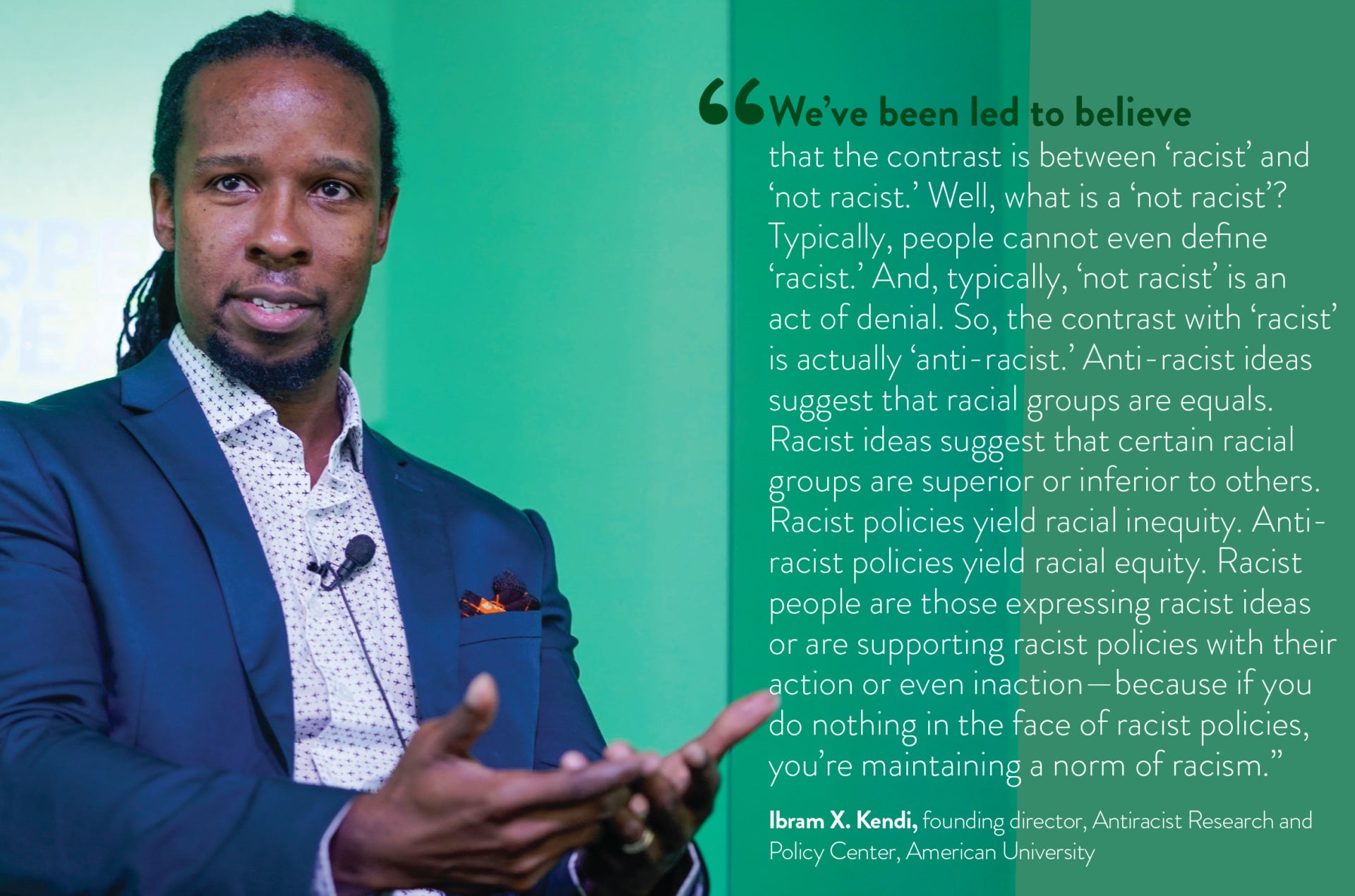
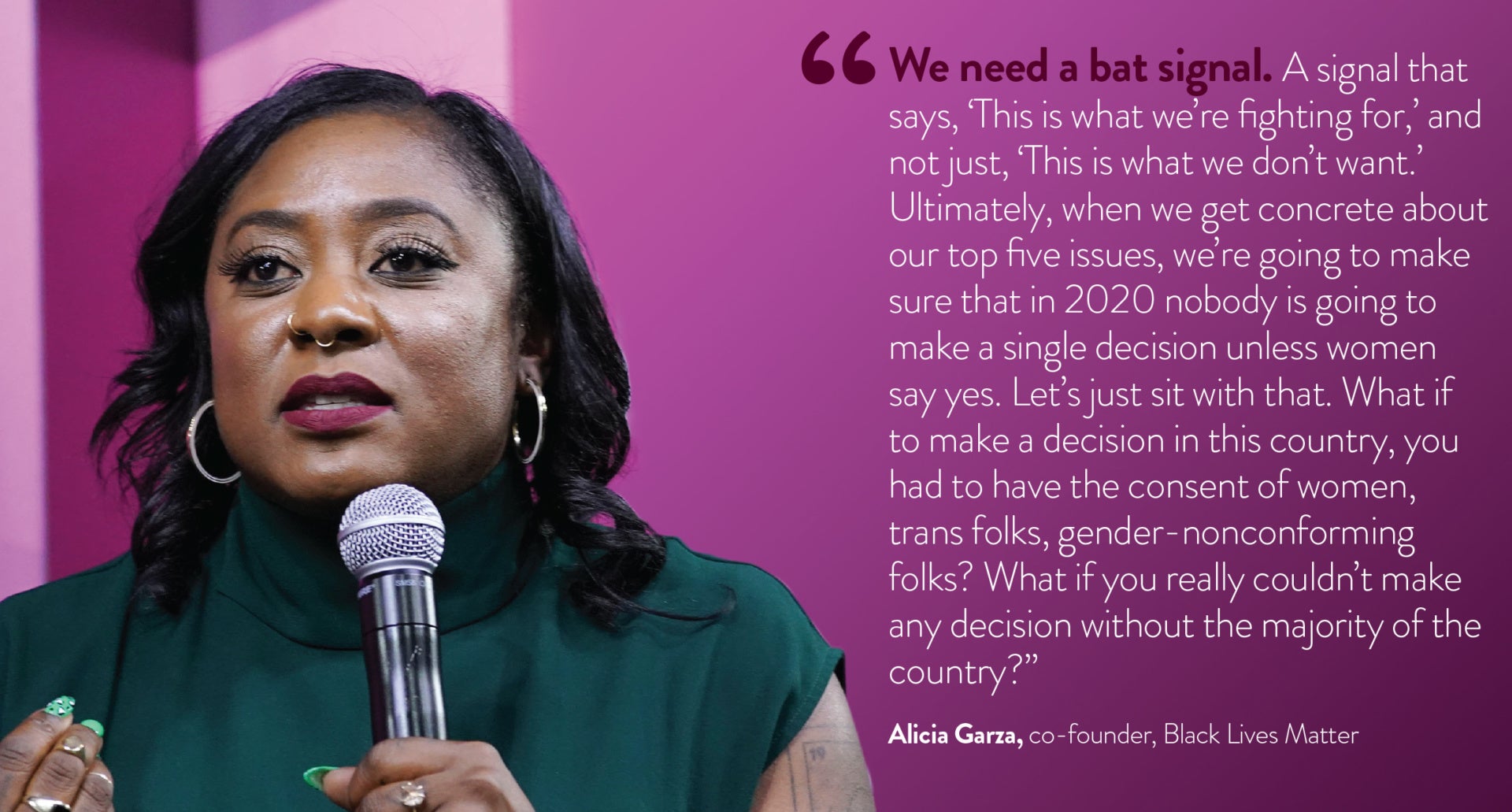

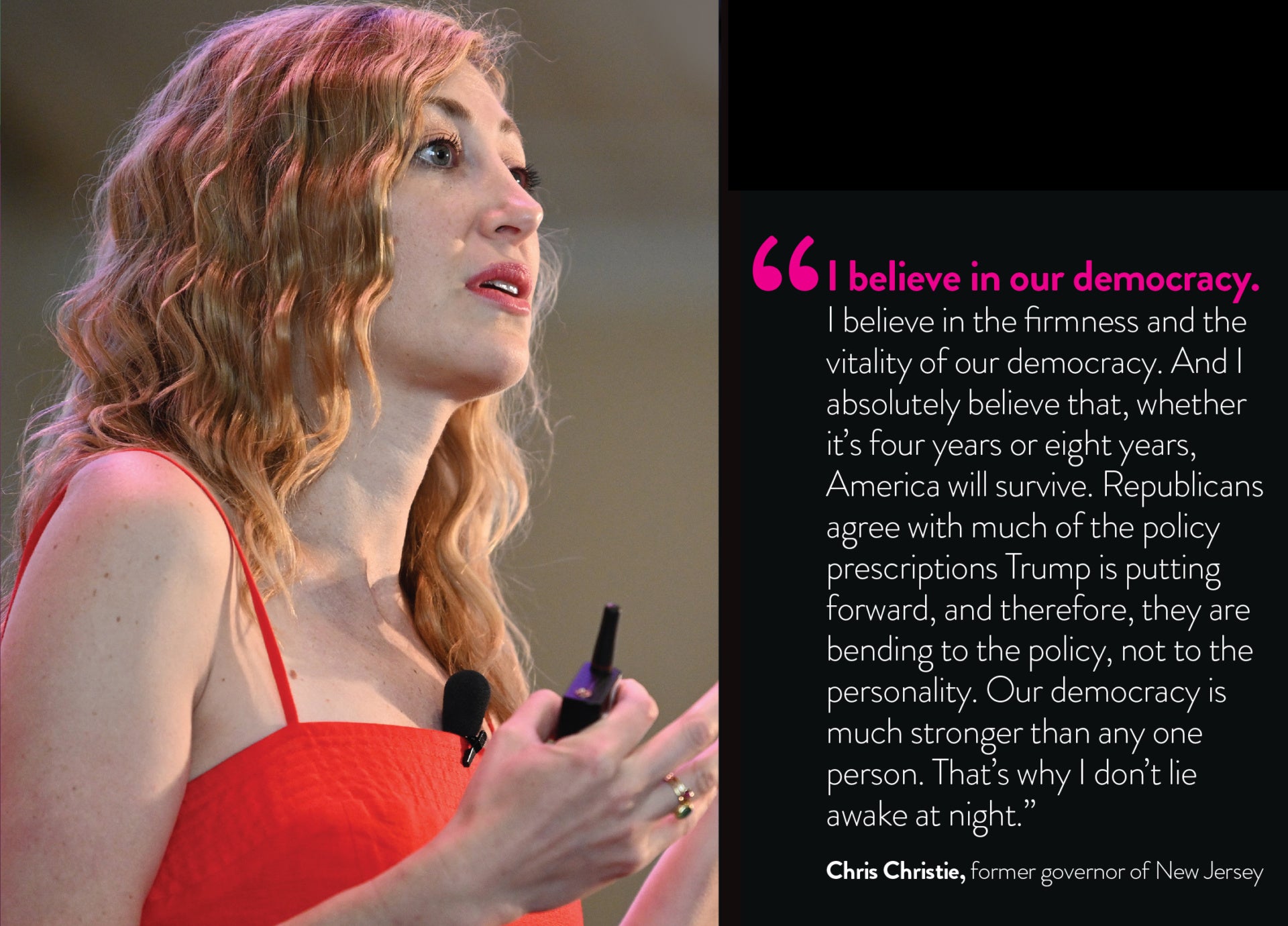
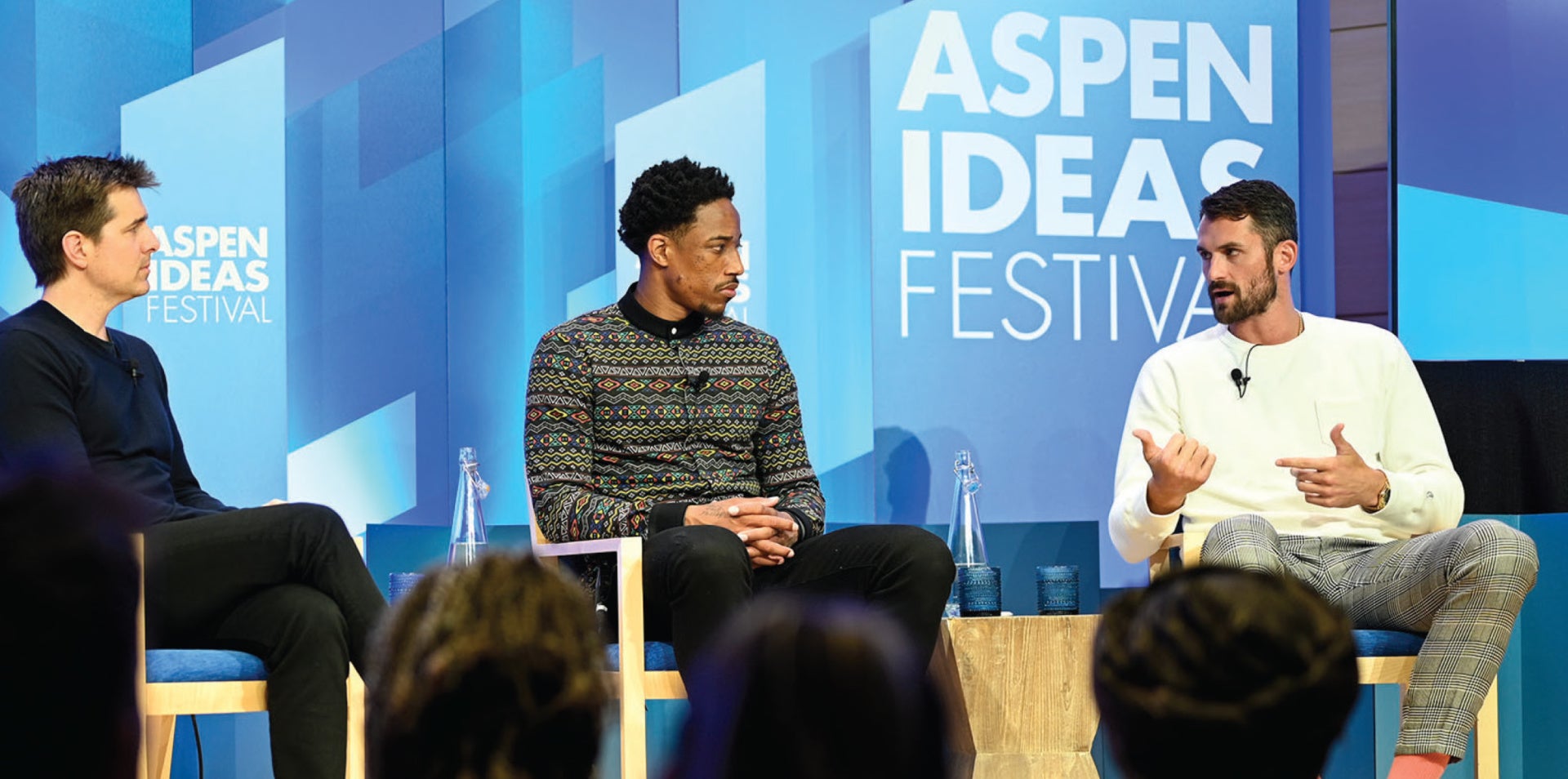
I grew up extremely rough. As I got older, I started asking questions: why my rage, my moods? I could be around a group of people, yet feel so alone. I got to a point to where I wanted to understand it. I don’t want to be that person when I retire—miserable with a bunch of money and hate. For me, just being able to come out, just accepting that to be vulnerable was my biggest issue. And being able to talk. I got tired of feeling like I had to be the toughest person every day all day.”
DeMar DeRozan, NBA shooting guard, San Antonio Spurs
We’re looked at as superheroes—indestructible, and there’s that feeling of invincibility, like when you’re a little kid. But we also feel isolated. There are so many layers to the human being. A reporter started asking all these questions: ‘Hey, there’s some rumblings that you’re unreliable or you’re suffering with some serious mental issues that make you untrustworthy out there on the floor.’ So I felt it was time for me to share my own story, but I wasn’t quite there yet. When DeMar, thank God, came out and shared his struggles with depression, I thought to myself, ‘Shit, if he can do it, I can do it.’”
Kevin Love, NBA all-star and power forward, Cleveland Cavaliers; founder, Kevin Love Fund
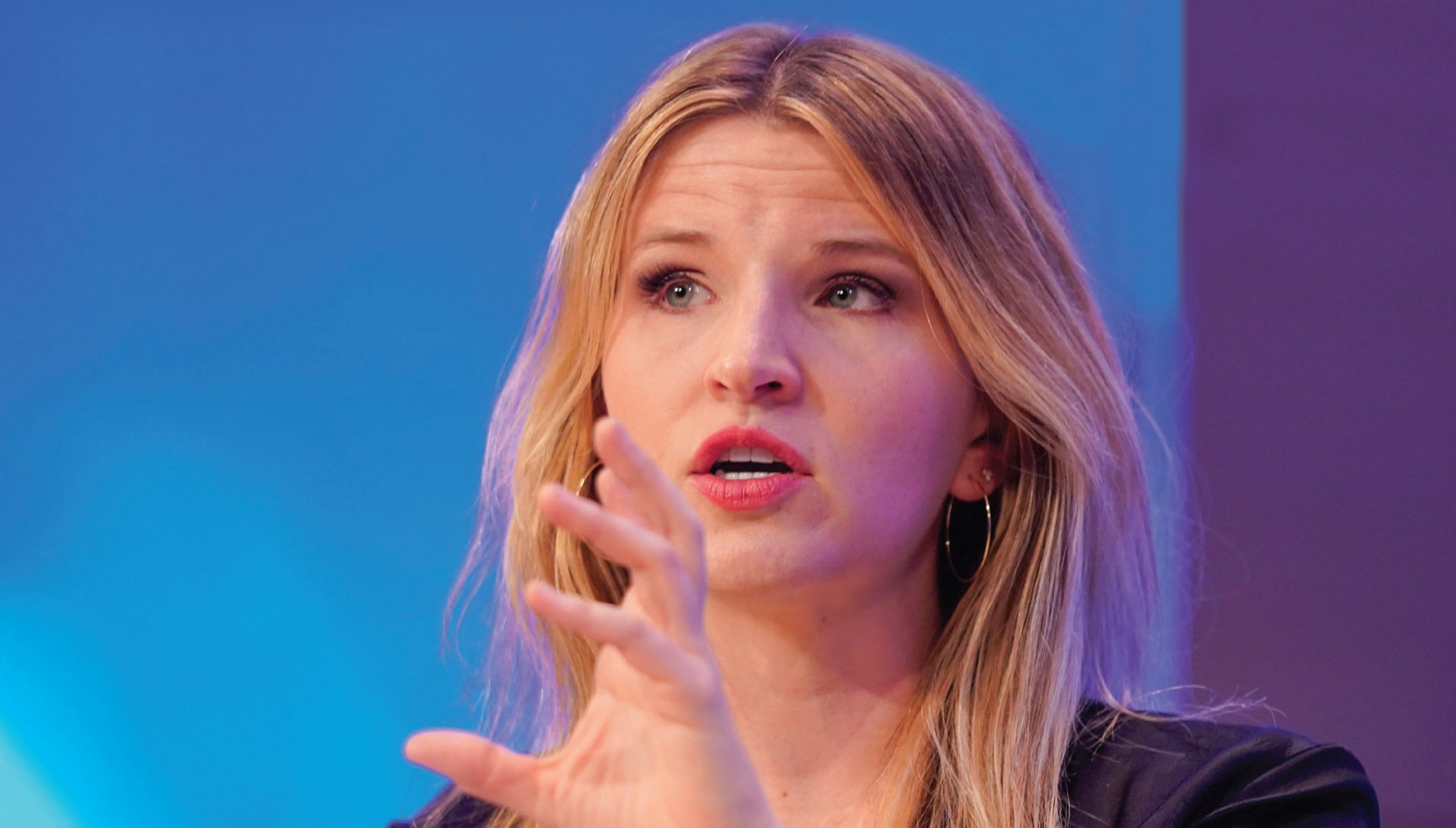
A person can have limited views in one part of their life—be wrong about something, even something really important—and still have an incredible capacity for compassion in another part of their life. We’re rightly hostile to a lot of views because they’re prejudiced, but we don’t often address how many of those views correlate with class issues or the role that being impoverished or not having access to education plays in their creation. So we end up punishing people twice. I know people who have views that I find to be really wrongheaded, maybe even reprehensible, but who have done selfless things like taken in foster children and adopted them. We should recognize that people are not one thing. That’s not to say that racism or sexism is OK, or we shouldn’t be protecting people who suffer from that rhetoric, but there is some benefit to attacking the prejudice and not the people.”
Tara Westover, author, Educated: A Memoir
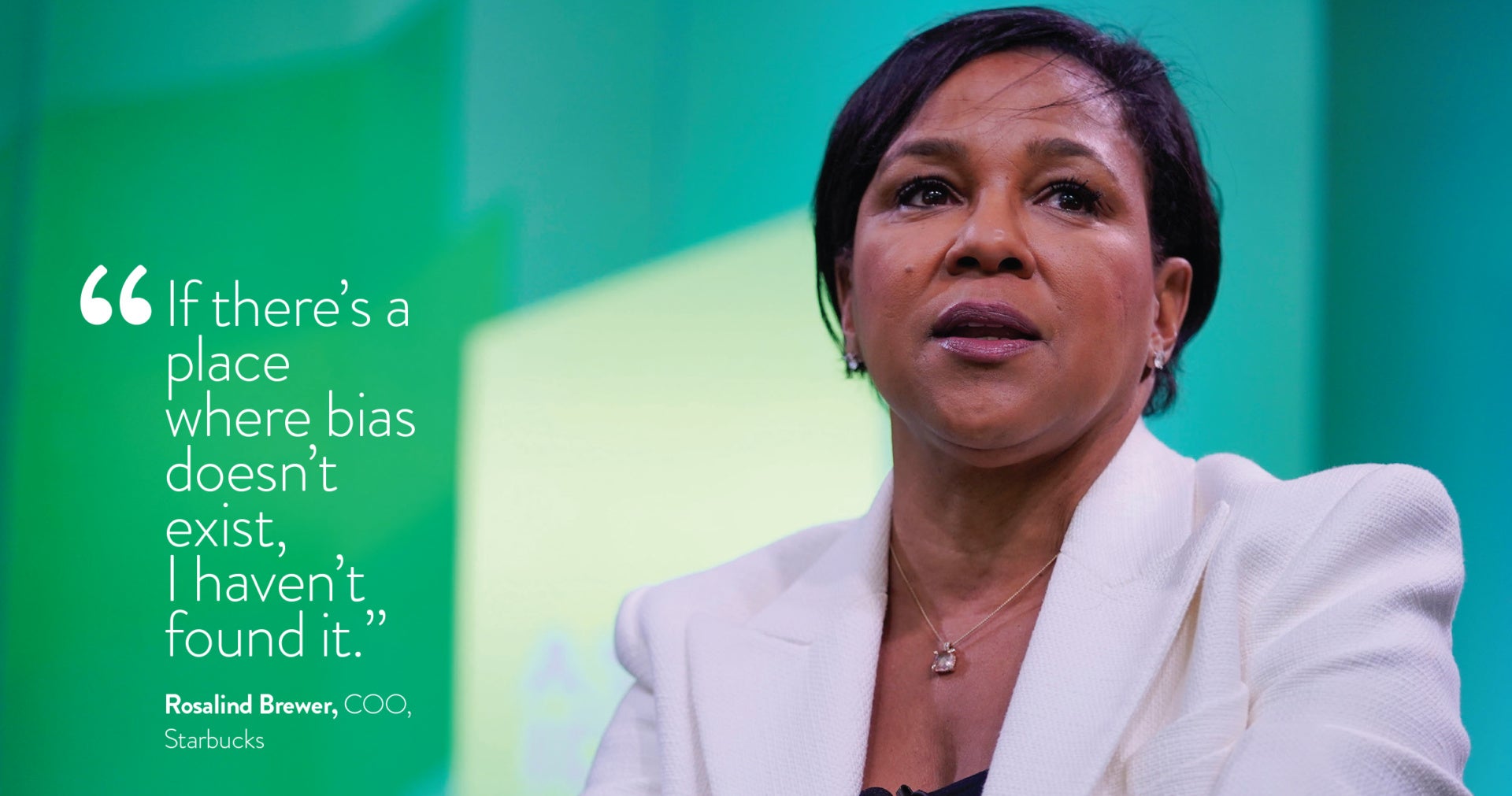
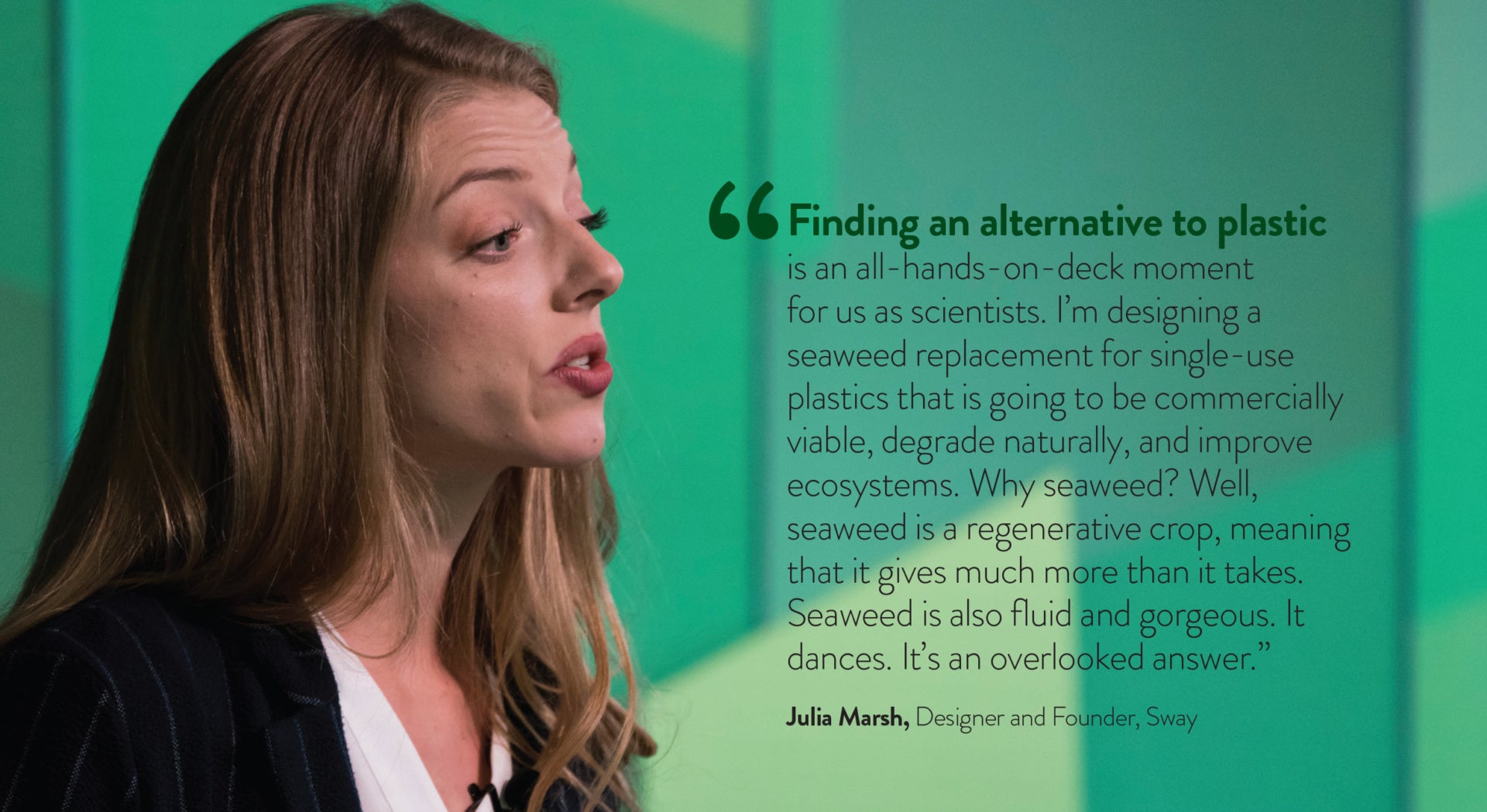
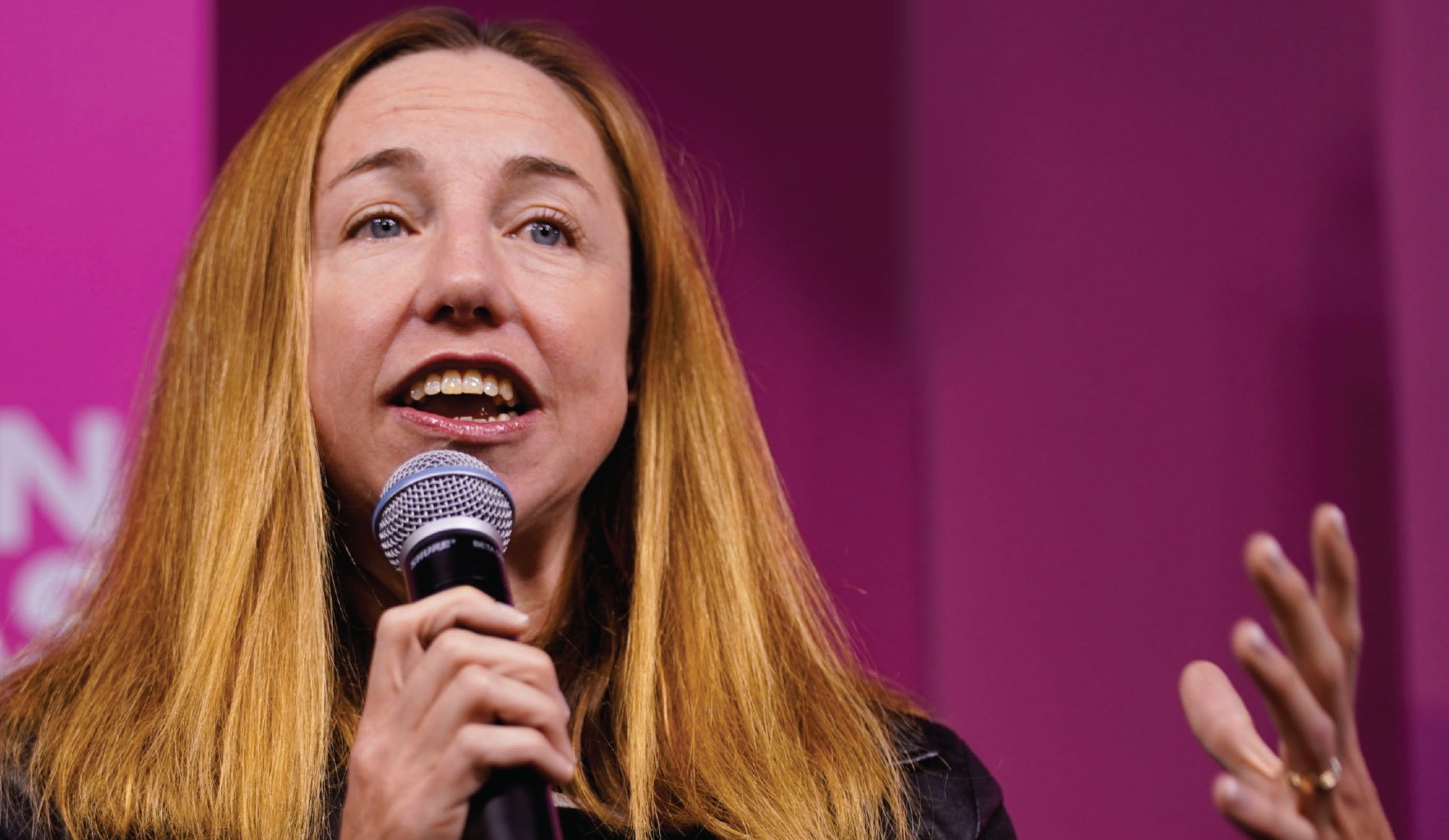
When Millennials had to find a building on campus without their phones, the typical student talked to three other people on campus along the way. How many people do you think the typical person talked to when they had their phones? Zero. The phone cuts out little interactions, which might seem trivial, but it turns out that these small interactions we have in everyday life can actually make a difference to our feelings of connection. Still, overall, people in the phone group were a little bit happier by the end of the day than the people who did not have their phones. The reason? Phones make things easy. People love easy stuff; easy is good. But this massive benefit that convenience provides is largely undercut by this loss of social connection. So, phones are changing our lives in multiple ways at the same time. It may depend on the particular features of the situation as to whether the phone is really going to hurt you or help you.”
Elizabeth Dunn, professor of psychology, University of British Columbia
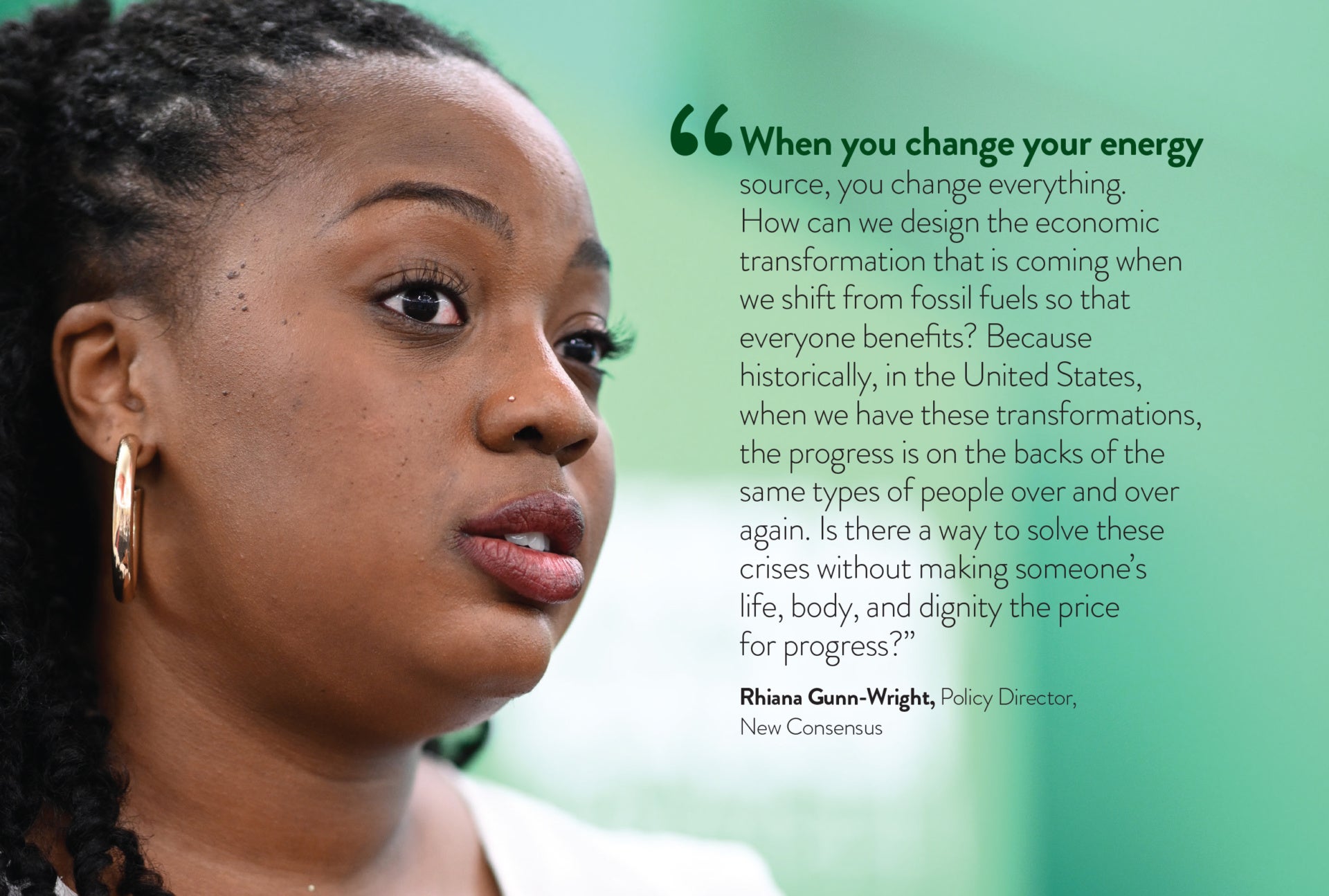
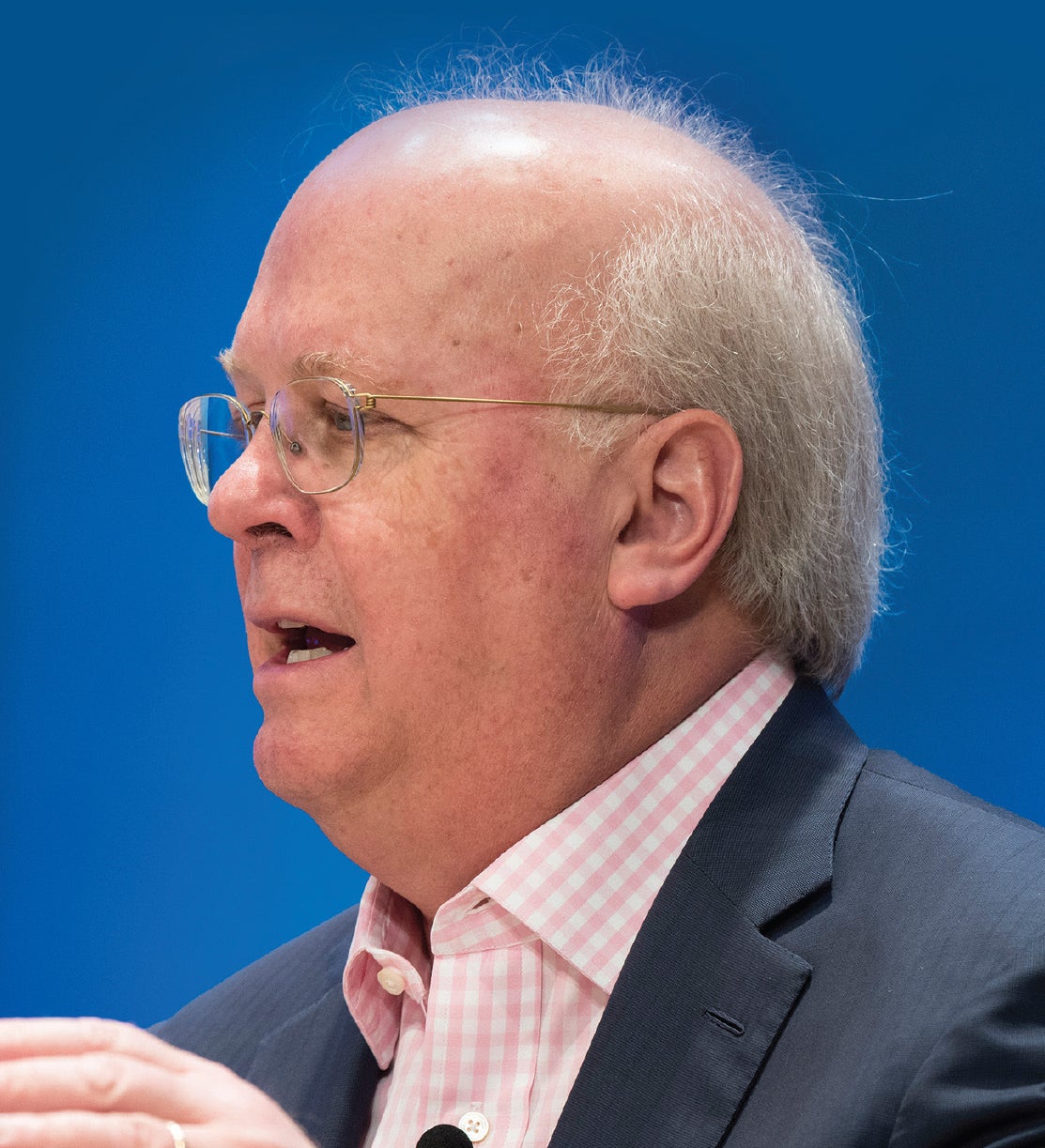
The United States is being forced to share a greater proportion of the defense burden for Western Europe. Three presidents—Clinton, Bush, and Obama—tried to do something about it. It was on the agenda of every NATO meeting and most G8 meetings, and every bilateral meeting with a NATO ally. And Trump comes in and he throws a fit. I give him credit: they’re now starting to pony up. So the undiplomatic language, the lack of process, and the impulsiveness do have some upsides.”
Karl Rove, Fox News contributor
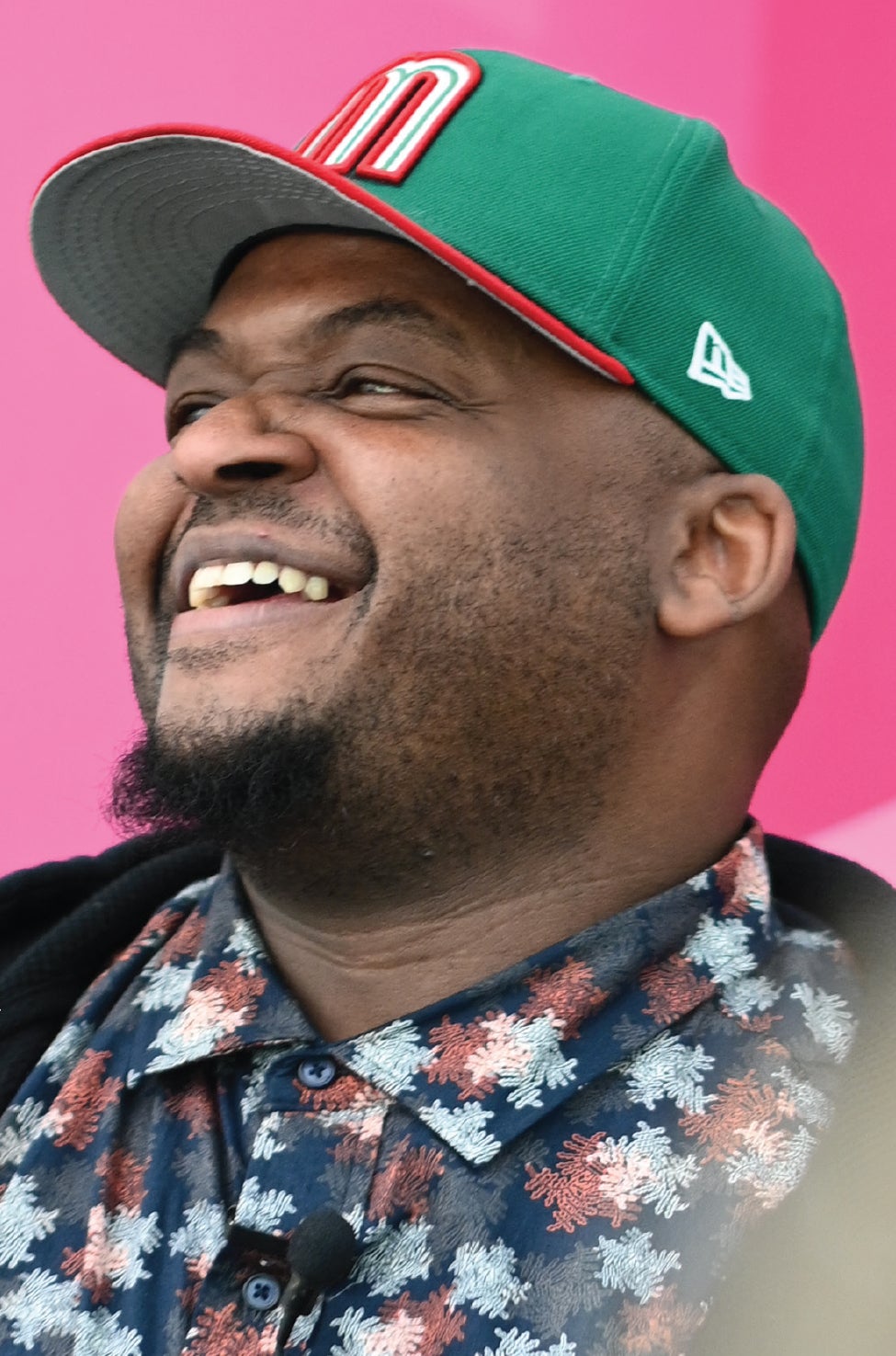
It hurts when your version of the truth collides with someone else’s version of the truth and they’re right.”
Kiese Laymon, author, Heavy: An American Memoir
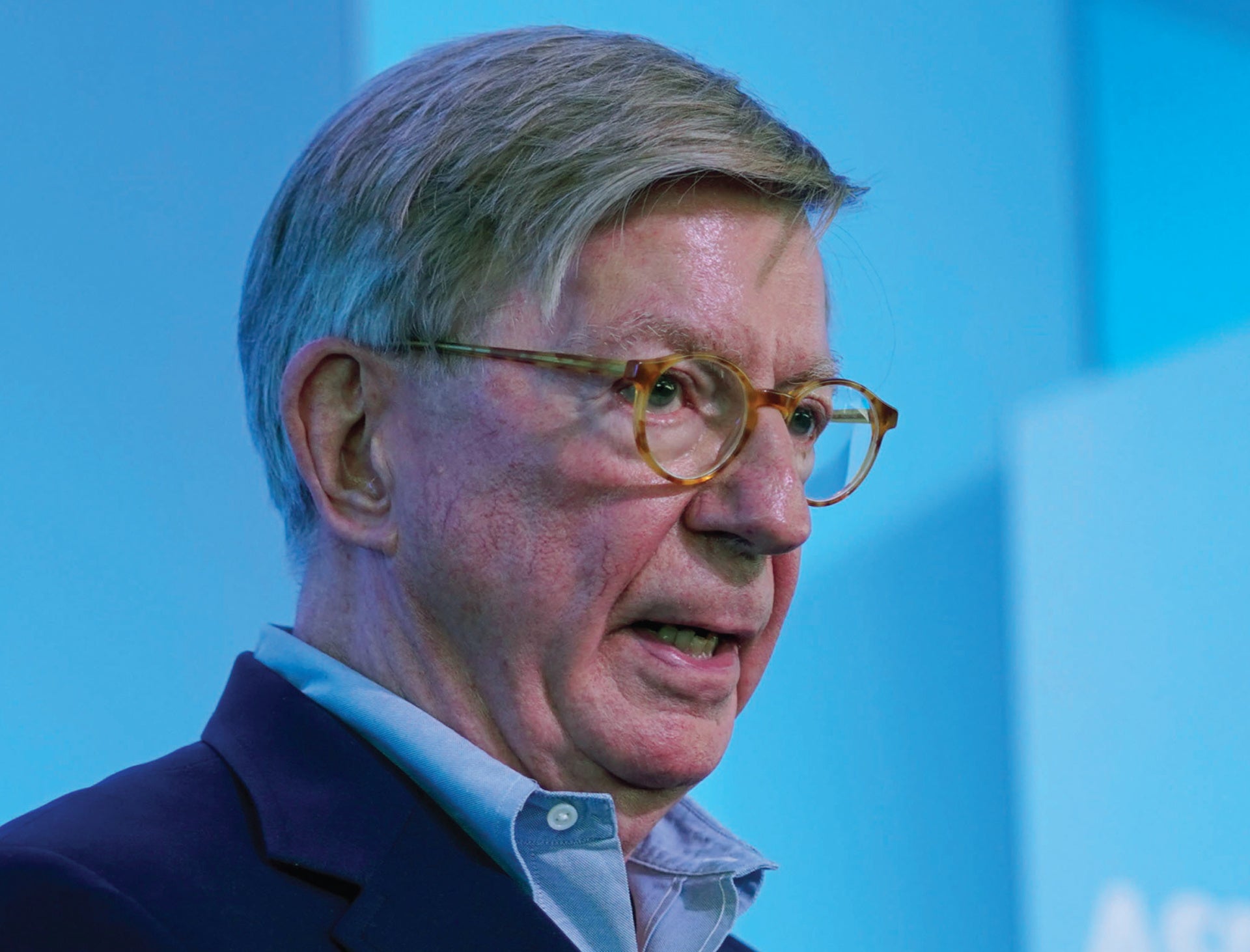
It was a good party to leave and I left. The Republican Party ceased being a vessel of conservatism. It did not damage conservatism; it damaged itself. It didn’t begin on January 20th at noon in 2017. It began a long time ago as Congress began divesting itself of powers that it had no right to divest itself of. The first words of the Constitution after the preamble are, ‘All legislative power shall be vested in a Congress of the United States.’ Once vested, it cannot be divested. But now, we have this enormous unfettered presidency, this anemic Congress, and no one can or should be happy with this disequilibrium in the wonderful constitutional architecture that Madison gave us.”
George Will, columnist, The Washington Post; analyst, MSNBC and NBC News
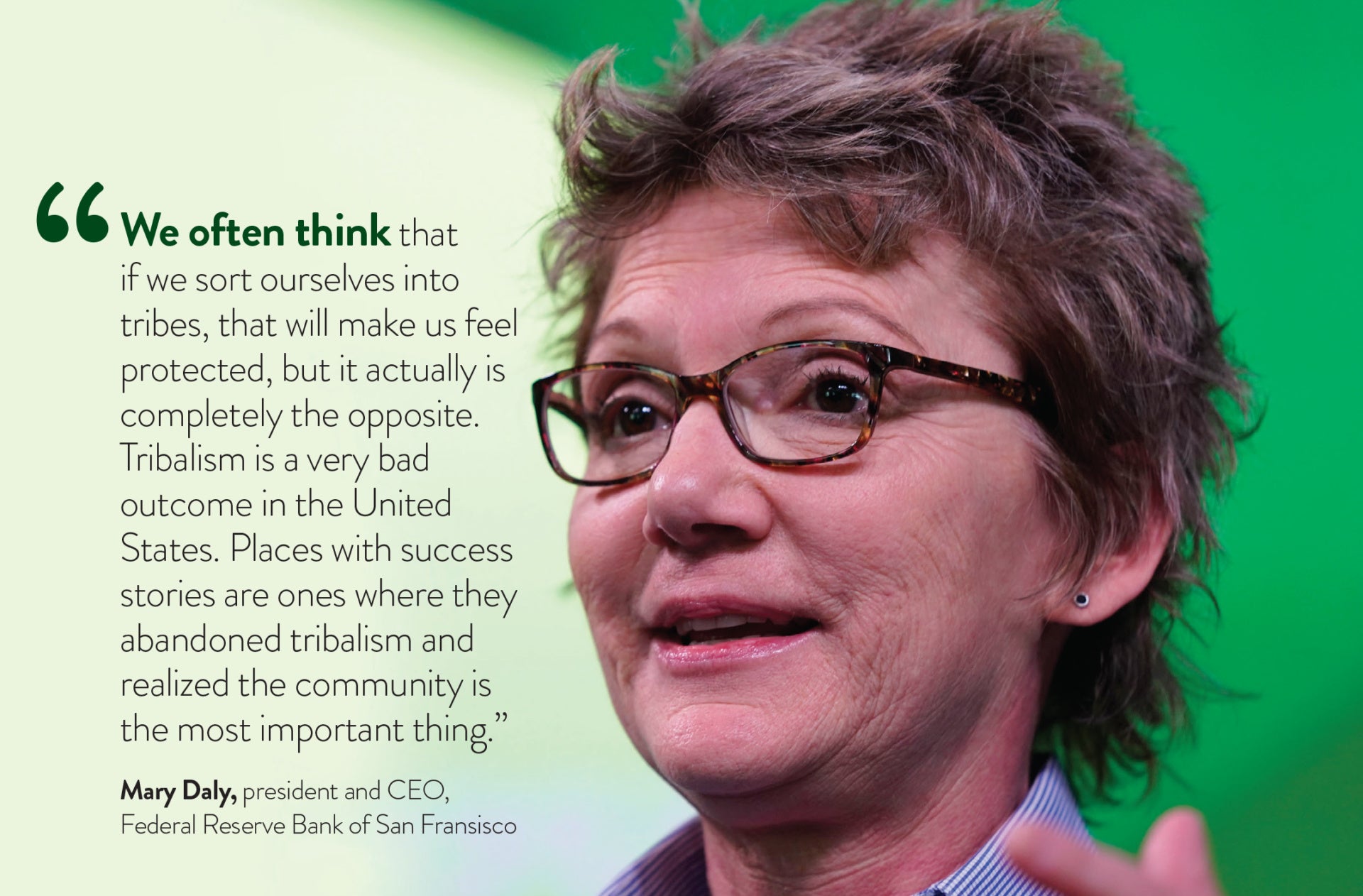

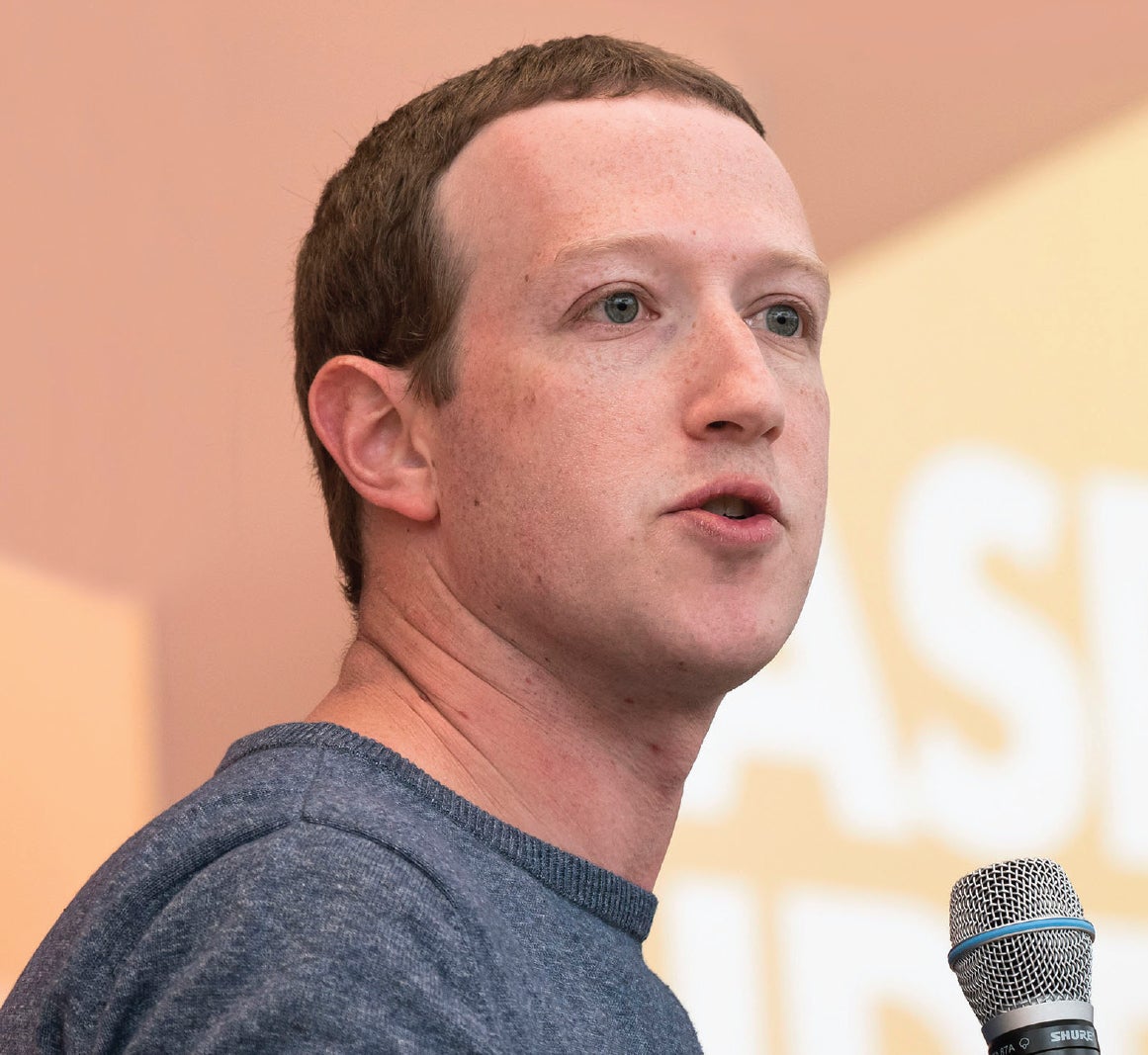
If, as a society, we were rewriting the rules of the internet from scratch today, it is not at all clear to me that we would want to have private companies making so many decisions about what constitutes political speech and what should be acceptable election advertising. We would be better off if we had a more robust democratic process setting the rules and arbitrating some of the trade-offs among values we hold dear.”
Mark Zuckerberg, CEO, Facebook
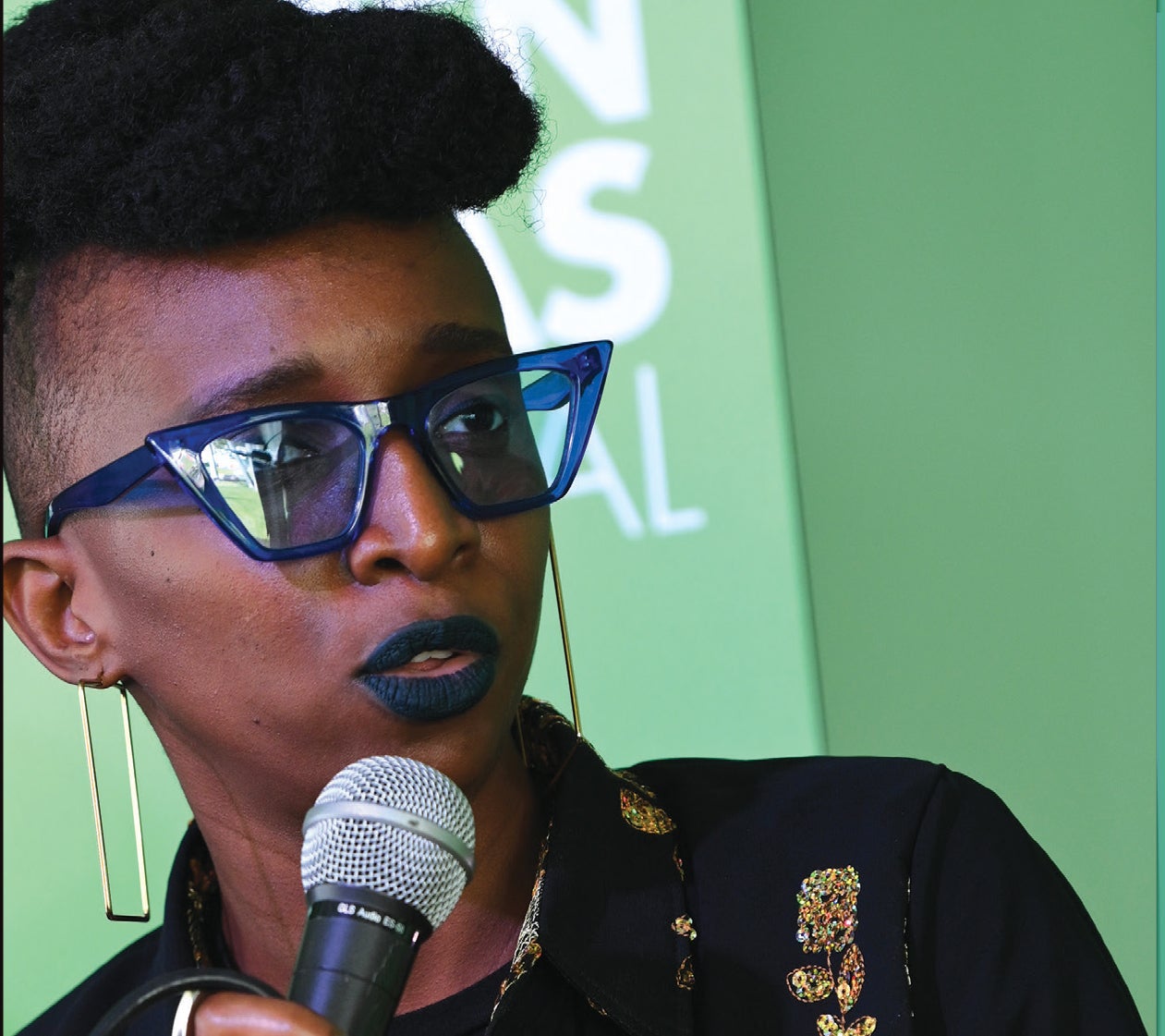
When I came home to Dakar and started to investigate the creative scene, I felt an energy that was specific to the city. It was a time when the subculture was rising, and I wanted to be a part of it. I wanted to express myself from that energy. Dakar, the visualization of the city, is a daily inspiration.”
Selly Raby Kane, designer, SRK
